In a collaborative venture, Museo Chileno de Arte Precolombino and Escondida | BHP proudly present the temporary exhibition ‘Fractures and Repairs’.
This innovative exhibition invites visitors to delve into the duality of fractures and repairs in human history, viewed through an American lens within the rich tapestry of pre-Columbian art. Through a selection of approximately 100 pre-Columbian art objects, the exhibition showcases how societies confront and repair historical fractures using collective memory and art.
Featured in the exhibition are an array of items: broken and repaired wooden artefacts, shattered and perforated ceramics, discarded fragments, and mended textiles. These represent strategies through which various American peoples gave new life to objects or concluded their use with ritual or funerary purposes.
These artefacts exemplify the endeavours of individuals and communities to preserve connections to various human and non-human entities, re-establish links with the landscape, and strengthen ties to their ancestors.
‘Fractures and Repairs’ is the result of a longstanding, fruitful collaboration between Museo Chileno de Arte Precolombino and Escondida | BHP.
Open from December 2023 to July 2024, the exhibition features a mediation room and a dynamic showcase, which will present objects from collaborating museums, artists and researchers. An extensive program of talks, panel discussions, workshops, and courses will complement the exhibition, focusing on the themes of fracture and repair.
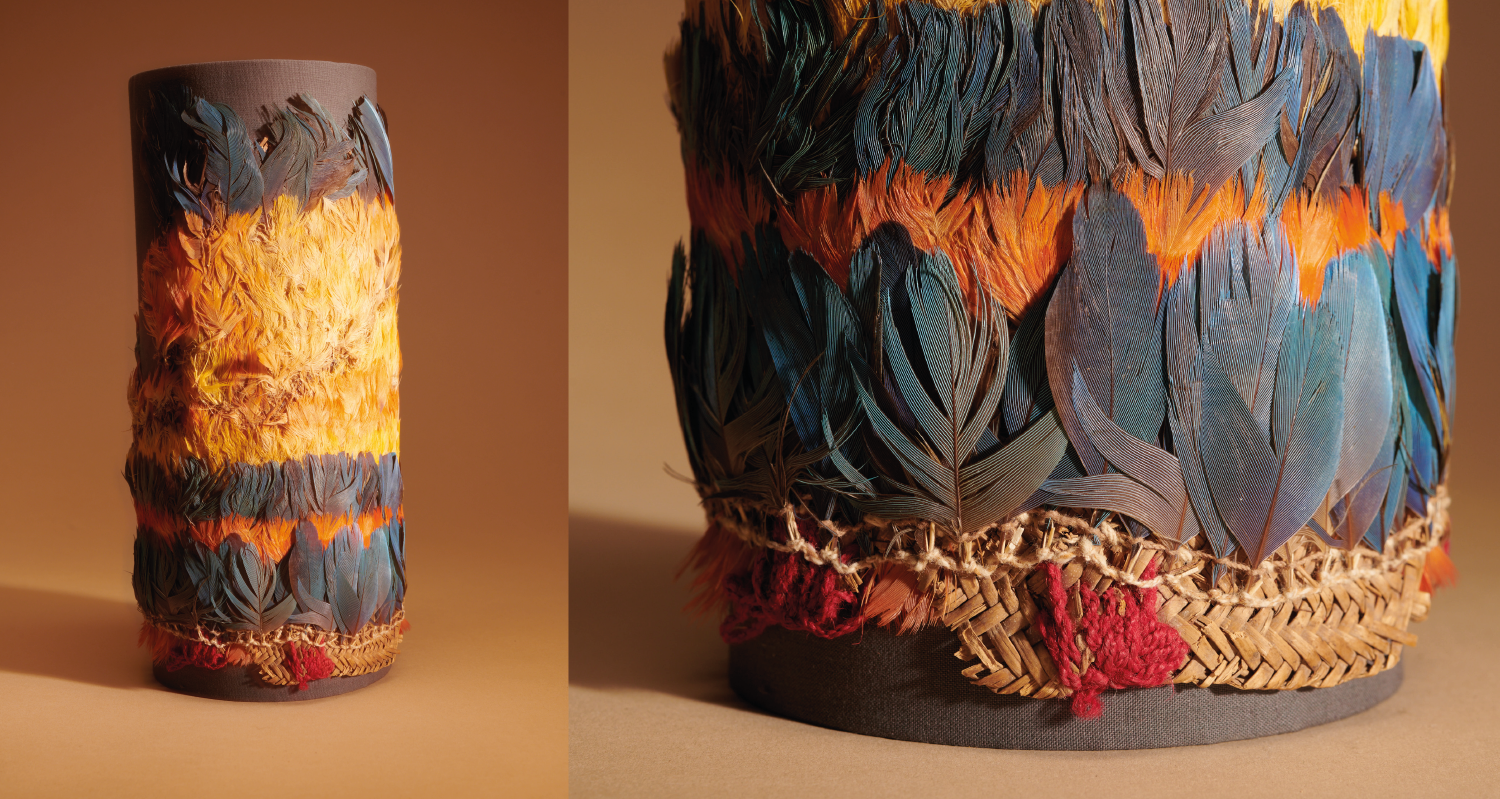
Chimu headdress made of plant fibre repaired
with stitches of twisted red cotton thread.
Basketry of plant base,
feathers, and cotton fibre.
Chimu, AD 1100-1400.
North coast of Peru.
Museo Chileno de Arte Precolombino
Pe-246 (2So x mm).
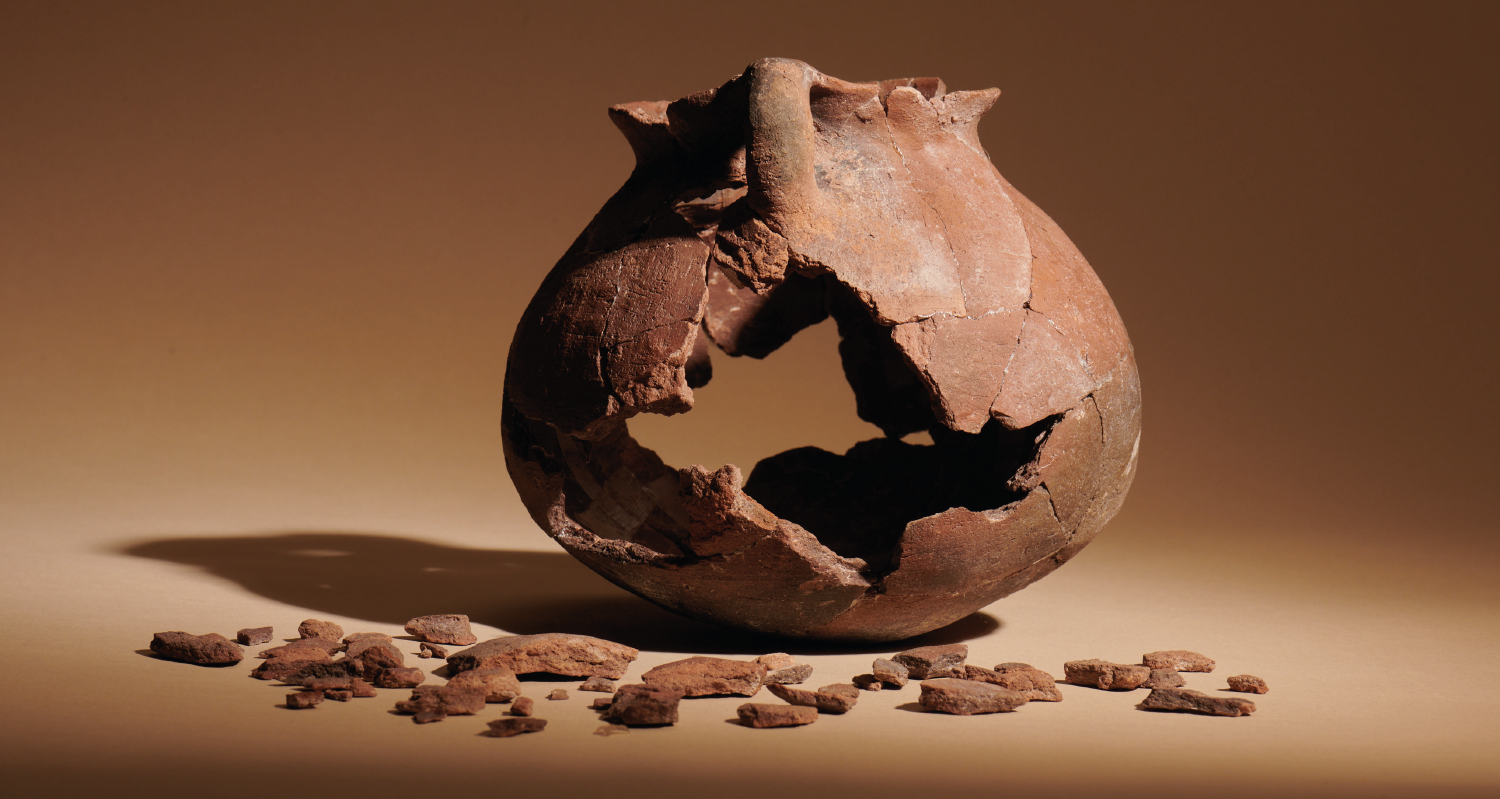
Plate intentionally broken as part
of a payment practice.
Monochrome plate.
Ceramic. Loa-Atacama Complex,
AD 1200-1400.
Upper Loa River, Northern Chile.
Private collection, pt-03
(Diam. 227 mm).
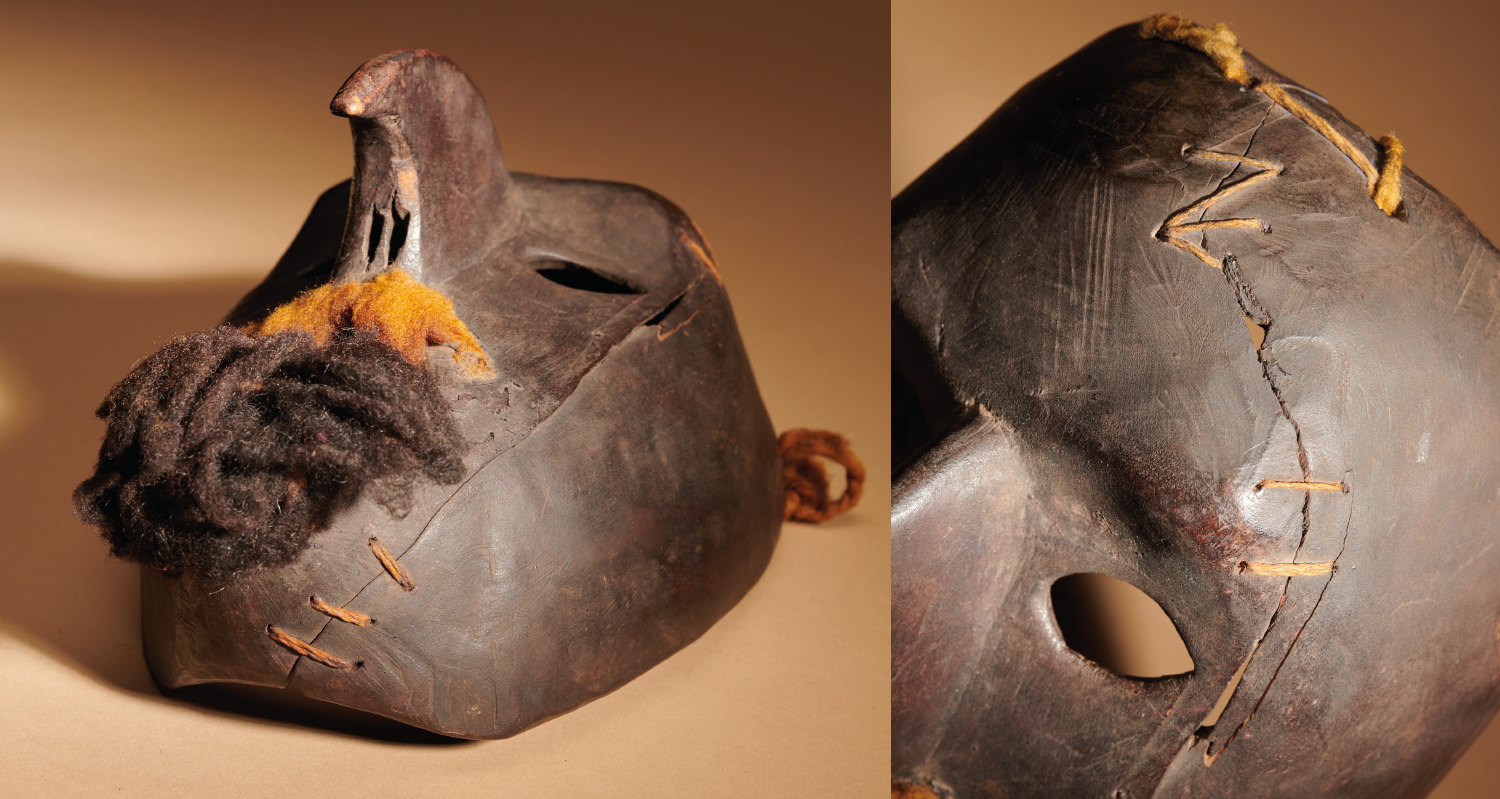
The cracked wood of this mask was repaired by drilling perforations
through which it was ‘darned’ with animal fibre.
Máscara Köllóng. Rostro humano
Madera y fibra textil
Pueblo Mapuche, siglo XX
Centro sur de Chile
Donación Horacio Bocardo Zapata, MChAP 1829
(260 x 168 mm)
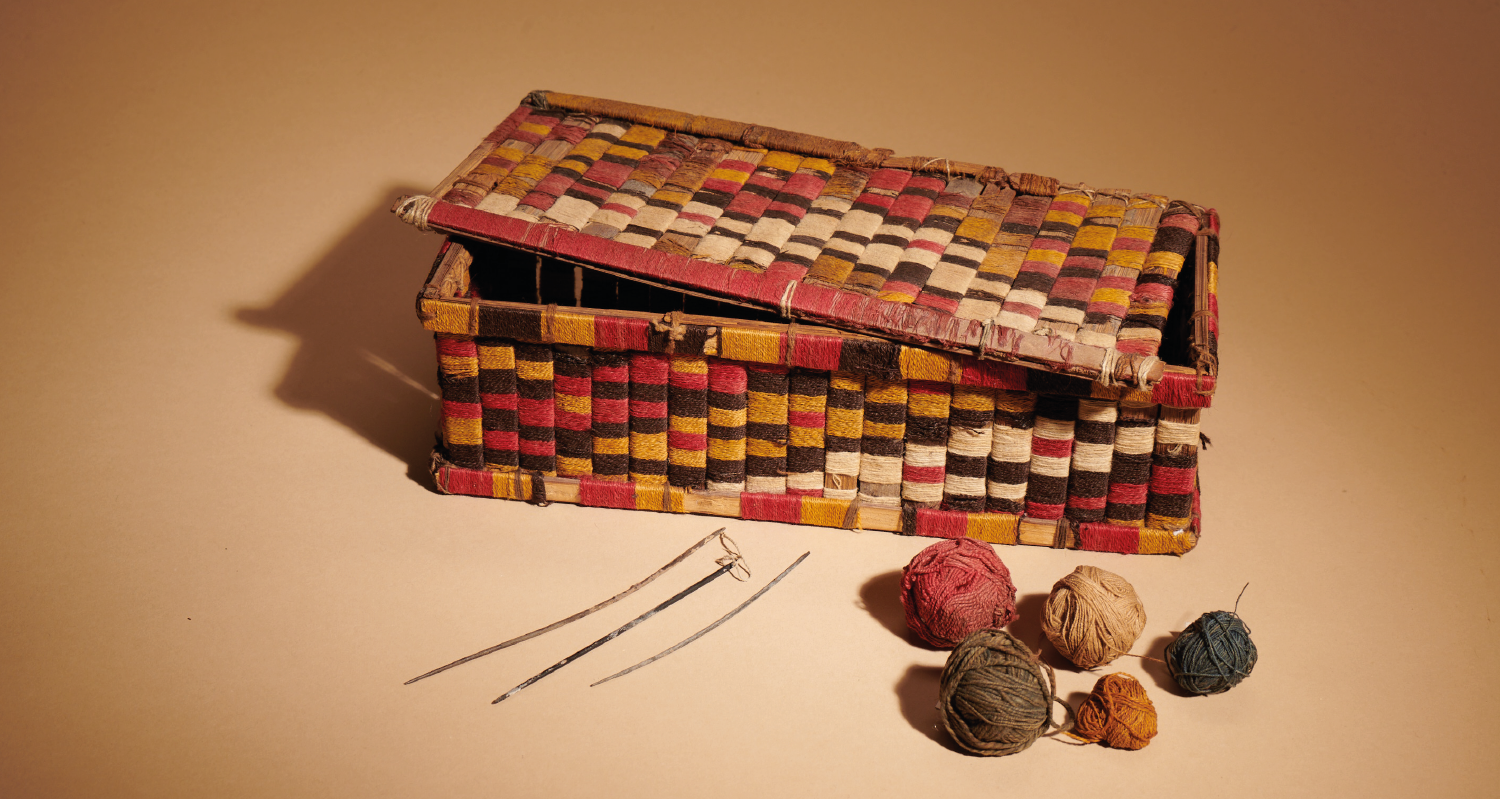
Sewing basket for storing yarns
of camelid hair and fleece, cotton balls, and cactus spine and metal needles. It was part of the equipment for textile production and repair.
Sewing basket.
Basket weaving, camelid fibre and wood.
Chancay, AD 1100-1400.
Central coast of Peru.
Museo Chileno de Arte Precolombino
2336 (257 x 102 x Se mm).
Textile materials. Balls Of
yarn. Camelid fibre, wood.
Chancay, AD 1100-1400.
Central coast Of Peru.
Museo Chileno de Arte
Precolombino 2976-37, SS,
59; 2333-3113, 311.
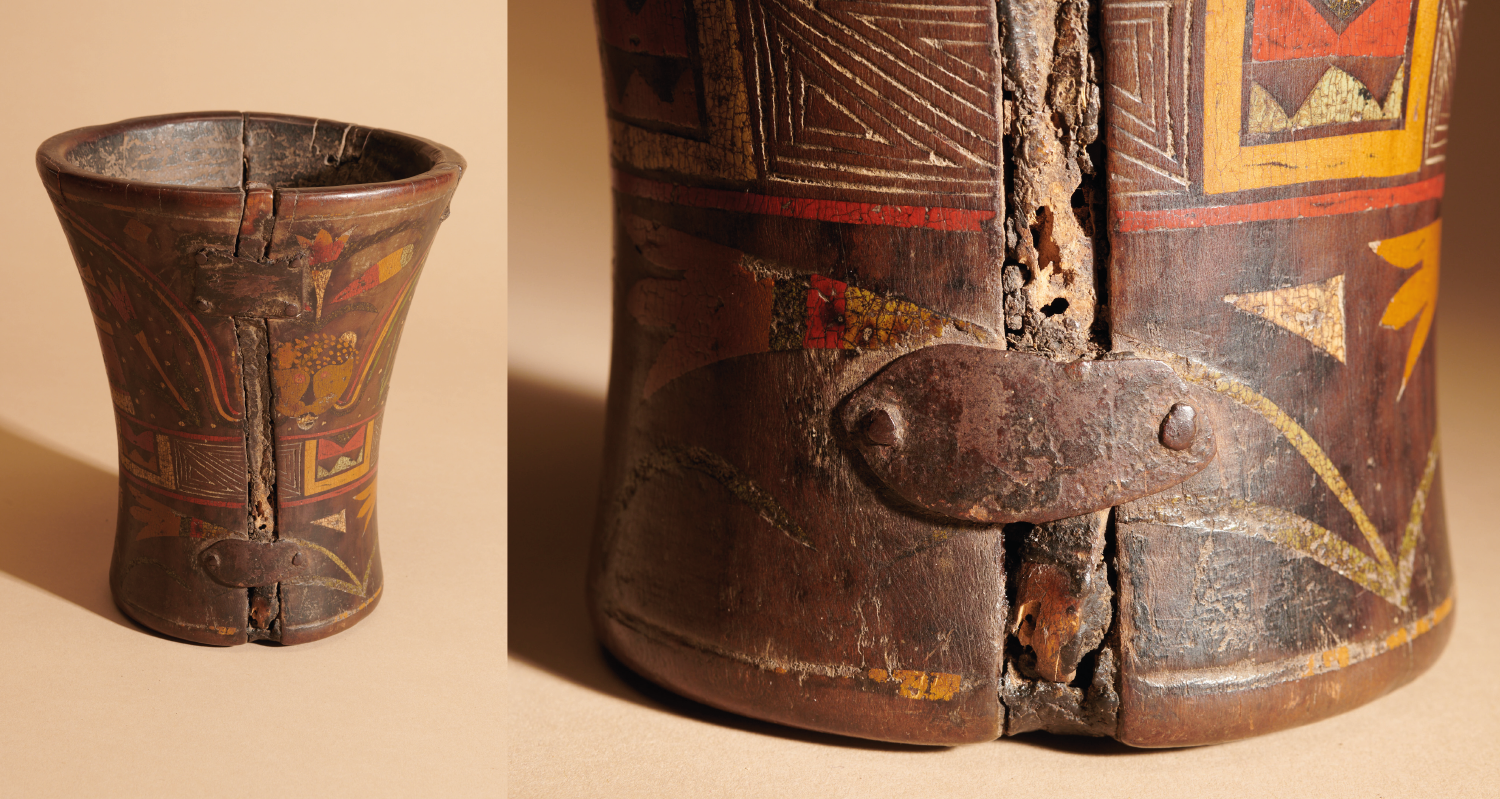
The crack in this kero was filled with tufts of raw cotton.
Kero-cup. Scene with floral motifs Polychrome wood.
Colonial Period, 16th-1Sth centuries. Peru.
Museo Chileno de Arte Precolombino MAS-2931 (164 x 120 mm).
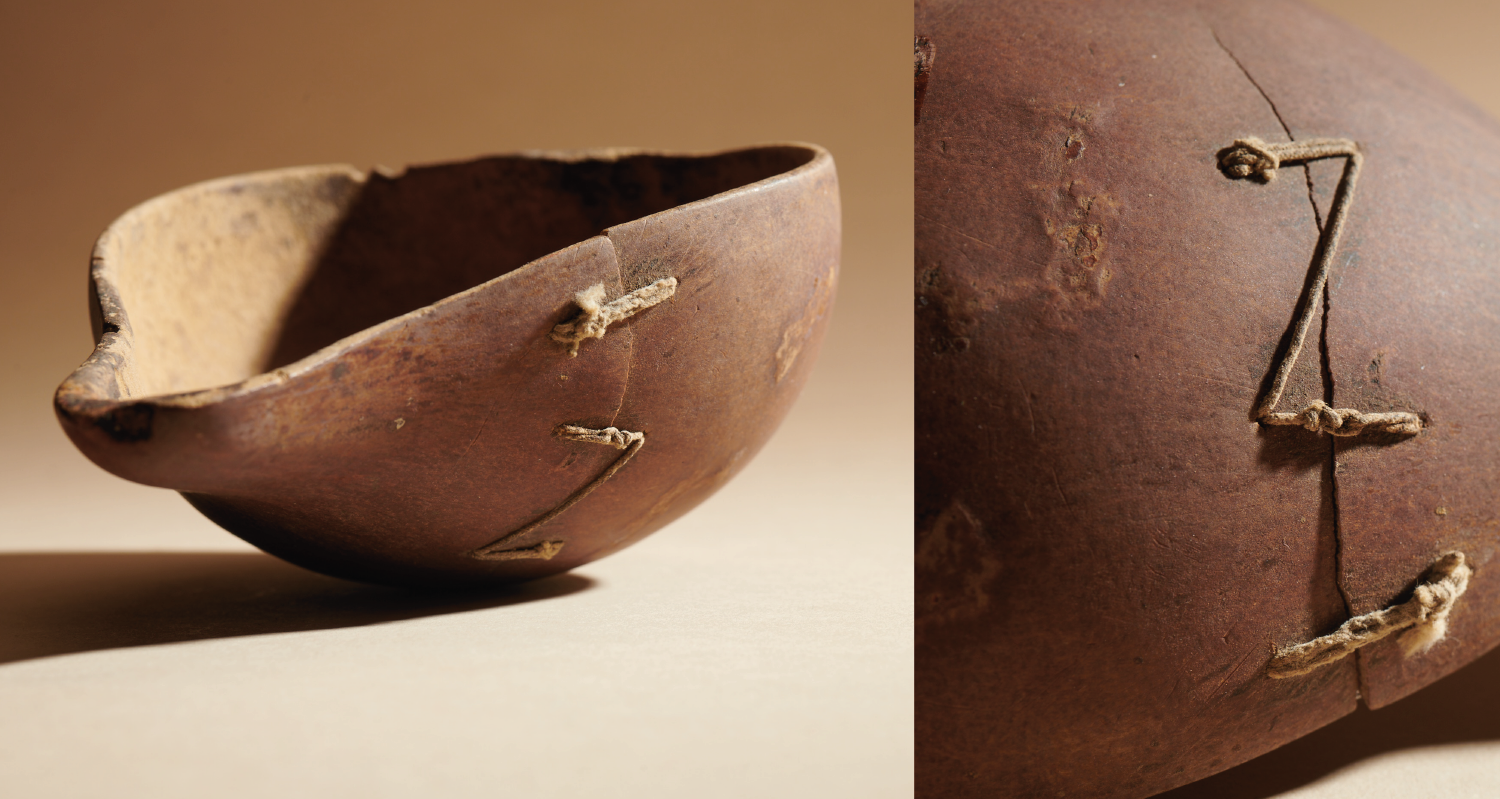
The cracks in this bowl were repaired with
parallel perforations joined with plant fibre.
Ceramic bowl. Hedionda,
AD 1100-1400. Southern
Bolivian Altiplano.
Museo Chileno de Arte Precolombino MAS-16S3
(145 x 61 mm).
What stories does a scar tell?
Within the ‘Fractures and Repairs’ exhibition, the Furman Room hosts a participatory installation, inviting visitors to inscribe their reflections on the exhibition and the poignant question: What story does a scar tell? Guests are encouraged to use messages and drawings on clay to express their thoughts.
Join us in creating a collective kinetic wall, evolving throughout the six months of the exhibition, as it gathers imprints of thoughts and images that scars, imprints, and marks of memory evoke in us.
Location: Furman Room |
Duration: 7 December 2023 – 12 July 2024 |
The installation is open to all audiences.
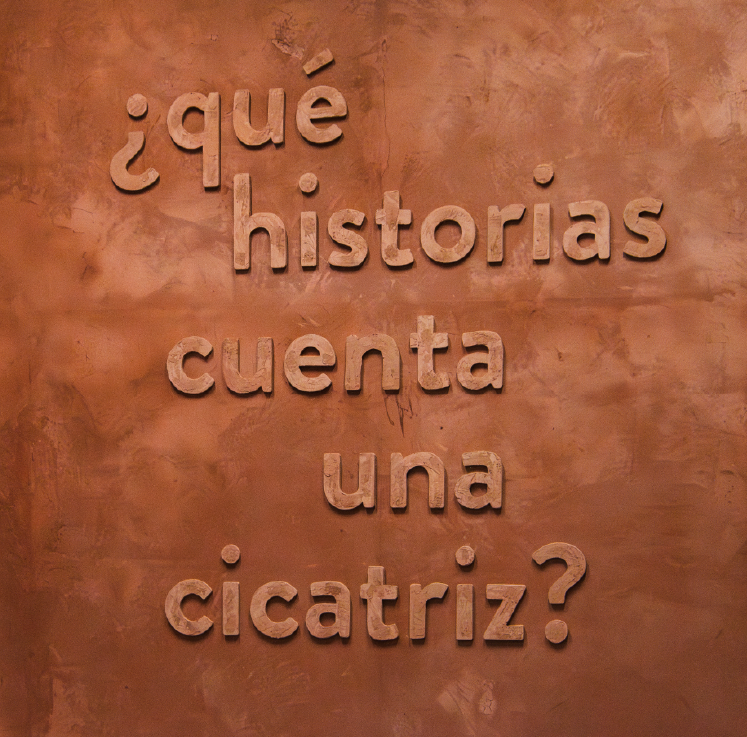
Reconstructing Futures: Contemporary Perspectives on Fractures and Repairs
Spanning six months, this exhibition will feature a diverse array of objects from museums, artists, researchers, and creators, expanding the discourse on the concepts of Fractures and Repairs.
Museo Taller delves into the technological, artefactual, and emotional dimensions behind the production and repair of objects. Colectivo Ronda addresses the utilization of new organic materials to confront socio-environmental crises. Distinguished contemporary artist Livia Marín will exhibit a work emphasizing the significance of absences and fractures, while Francisca Márquez and Margarita Reyes will lead us to contemplate the role of plants in rejuvenating devastated urban landscapes.
In a poignant display, Museo de la Memoria y los Derechos Humanos showcases an object used by Orlando Letelier, Allende’s Foreign Minister, during his political imprisonment on Dawson Island, prompting reflections on memory and its healing power 50 years after the coup.
Presented at various stages throughout the exhibition’s duration, these pieces continuously renew the experience, enriching the thematic exploration of Fractures and Repairs.
Participative Installation:
“What Stories Does a Scar Tell?”
Location: Furman Room
Period: 7 December 2023 to 12 July 2024
Open to all audiences
Dynamic Showcase
by Colectivo Ronda
Location: Furman Room
Period: 30 January to 3 March 2024
Open to all audiences
Dynamic Showcase
by Francisca Márquez and Margarita Reyes
Location: Furman Room
Period: 9 April to 13 May 2024
Open to all audiences
Talk:
“Creative Process in Fractures and Repairs”
Online
Date: January 2024, 16:30 h (Day to be confirmed)
Open to all audiences, prior registration required
Panel Discussion:
“Artistic Devices for Discussing Fracture and Repair”
Location: Central Hall
Date: April 2024, 18:30 h (Day to be confirmed)
Open to all audiences, prior registration required
Panel Discussion:
“Memory, Fractures, and Technology”
Location: Central Hall
Date: July 2024, 18:30 h (Day to be confirmed)
Open to all audiences, prior registration required
Workshop:
“Repairing and Creating Ceramics” with
Mapuche Craftswoman Gloria Huenchuleo
Location: Furman Room
Dates: Saturdays 2 and 9 March 2024
Aimed at young people and adults from 14 years
Paid, prior registration required
Workshop:
“Repairing the Everyday:
Textile Repair” presented by Colectivo Reparemos
Location: Central Hall
Date: Saturday 6 April 2024, 12:00 h
Aimed at children and families
Free, prior registration required
Workshop:
“Mosaic I: What Stories Does a Scar Tell?”
with Curator Julia Romero
Location: Central Hall
Date: May 2024 (Specific dates to be confirmed)
Open to all audiences, prior registration required
Series:
“The Craft of Restoration: Pottery”
Location: Sala América en el Arte
Date: January 2024
Open to all audiences, prior registration required
Series:
“The Craft of Restoration: Metalworking”
Location: Sala América en el Arte
Date: March 2024
Open to all audiences, prior registration required
Dynamic Showcase
by Museum Workshop
Location: Furman Room
Period: 7 December 2023 – 28 January 2024
Open to all audiences
Dynamic Showcase
by Livia Marín
Location: Furman Room
Period: 5 March to 7 April 2024
Open to all audiences
Dynamic Showcase
by Museo de la Memoria y los Derechos Humanos
Location: Furman Room
Period: 14 May – 14 July 2024
Open to all audiences
Panel Discussion:
“Launch of ‘Fractures and Repairs’ Catalogue”
Location: Central Hall
Date: March 2024, 18:30 h (Day to be confirmed)
Open to all audiences, prior registration required
Panel Discussion:
“Memory and Body”
Location: Central Hall
Date: May 2024, 18:30 h (Day to be confirmed)
Open to all audiences, prior registration required
Workshop:
“Repairing the Everyday:
Children’s Recycling” presented by Colectivo Reparemos
Location: Central Hall
Date: Saturday 13 January 2024, 12:00 h
Aimed at children and families
Free, prior registration required
Workshop:
“The Gaze at the Intimate in Repair”
Location: Furman Room
Period: 7 December 2023 to 12 July 2024
Open to all audiences, prior registration required
Workshop:
“Healing and Repairing Body and Spirit”
with Lawentuchefe Practitioner Dolariza Coñoepan
Location: Furman Room
Dates: Saturdays 20 and 27 April 2024, 15:00 to 18:00 h
Aimed at young people and adults from 14 years
Paid, prior registration required
Workshop:
“Wishing Mobile” with Diaguita Craftswoman Paula Carvajal
Location: Furman Room
Date: Saturday 8 June 2024
Workshop
The restoration profession: Textiles
Place: America in Art Room
March 2024
Open to all audiences, prior registration required
Fotografías: Bastien Reveco
Video: Claudio Mercado y Angelo Santa Cruz


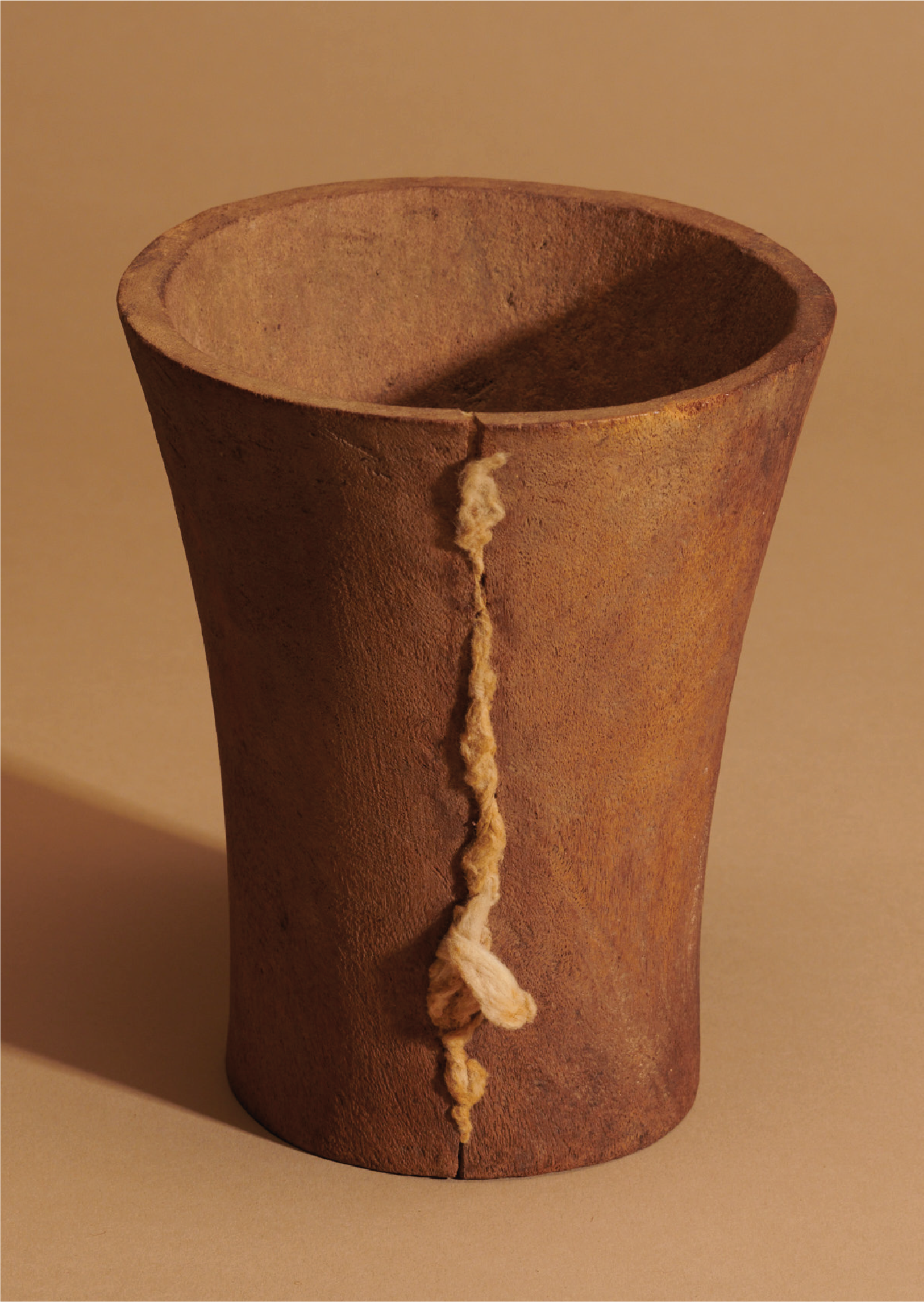
Exhibition Design
Creative Director, Design and Installation, Bernardo Oyarzún
Producción y montaje, Valentina Soto Acuña, Daniel Varas Araya y Carlos Ruiz Ruiz
Videos, Pablo Antonio Maco Icaza y Pablo Marfán
Graphic Design, Juan Américo Pastenes de la Jara
Graphic Production, Gerson Reyes (Lemond)
MChAP Display Cases Assembly, Jorge Galaz
Museum Collection Mounting, Luis Solar Labra y Bernardo Oyarzún.
Acknowledgement
Conservation of Museum Collections, Magdalena Guajardo Matta, Valeria Pacheco Matamala, Constanza Baltierra Fuenzalida, María Fernanda Chávez Guiñez y Danae Roa Farías
Curation of Museum Collections, Cristian Vargas Paillahueque y Paulina Sánchez Vío
Development of Educational Initiative for Mediation, Julia Romero Arancibia
Educational Curation and Public Engagement, Livia Marín Firmani, Francisca Márquez Belloni, Colectivo Ronda, Museo Taller y Museo de la Memoria y los Derechos Humanos
Social Media Campaign MChAP, Lorena Iglesias, Eva Benardis, Lily Obregón, Luis Andrés Anticoi, Florencia Achondo, Pedro Diaz, Productora Canino
Acknowledgement of Loaned Items, Familia Soza Larraín, Museo de la Memoria y Derechos Humanos, Museo Taller, Colectivo Ronda, Livia Marín Firmani y Francisca Márquez Belloni
Curation
Felipe Armstrong Bruzzone y Claudio Alvarado Lincopi,
Departamento de Curaduría
Daniela Cross Gantes, Collections Department
Cecilia Uribe Echeverría, invited curator
Collection Department, Audiovisual Heritage, Communications and Public Engagement, Education and Administration
Museo Chileno de Arte Precolombino
Website
Design, Angelo Santa Cruz
Development, Mauricio Troncoso
Museo en internet y RRSS
museo.precolombino.cl
precolombino.cl